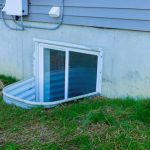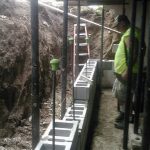7 Important Signs It’s Time To Repair or Replace Your Driveway
Many homeowners don’t give much thought to their driveways. However, even though these areas are built to be as strong as possible, they will eventually succumb to the elements and traffic. Over time, your driveway will develop cracks, potholes, and other types of damage, and when that happens, it can be hard to know whether to repair or replace it. We’ll discuss some of the signs it’s time to repair or replace your driveway.
How Do You Know When Your Driveway Needs Repairs?
- Minor cracks: Small cracks in your driveway are usually nothing to worry about. These can be caused by temperature changes or simply from normal wear and tear. The earlier you repair them, the less chance they have of growing and becoming a bigger problem.
- Standing water: When it rains, does water pool on your driveway? That’s a sign that your driveway needs repairs. A well-installed driveway should drain water. If water is pooling, there’s a problem with the grading or drainage, which needs to be fixed.
- Discoloration: UV rays, oil leaks, and other factors can cause your driveway to change color. Since you may want a certain look for your home, you may want to repair your driveway if it starts to discolor. Applying a sealant can often help with this problem.
How Do You Know When Your Driveway Needs To Be Replaced?
- Large cracks and lots of potholes: If your driveway is riddled with cracks and potholes, it’s probably time for a replacement. These problems can’t be easily repaired, and the repair costs may almost be equal to a full replacement. Therefore, if you’re facing extensive damage, it may be time for a new driveway.
- Your driveway is old: The average driveway lasts for about 20 years. So, if your driveway is approaching that age, it may be time to start thinking about a replacement. Of course, this will also depend on the condition of your driveway. If it’s in relatively good shape, you may be able to get a few more years out of it. If it’s starting to show its age, a replacement may be the best option.
- Poor installation: If your driveway was poorly installed, it might not last as long as a properly installed one. It’ll also be more likely to develop problems earlier on. If you’re having trouble with your driveway and it’s not that old, it may have been poorly installed. In that case, you may want to get a new driveway installed by a professional company.
- An eroded sub-base: The sub-base is the layer of material under your driveway. It’s typically made of gravel, and it provides support for your driveway. If the sub-base is eroded, it can cause your driveway to crack and crumble. You’ll need to replace the sub-base and then install a new driveway on top of it.
If you’re not sure whether you should repair or replace your driveway, it’s always a good idea to consult a professional. They can assess the damage and give you the best advice for your situation. Remember that while a repair may seem easy and less expensive, it may not be the best long-term solution. In some cases, a replacement will be more cost-effective in the long run to avoid repeated repairs.
More...
Categorised in: Driveway Repairs




